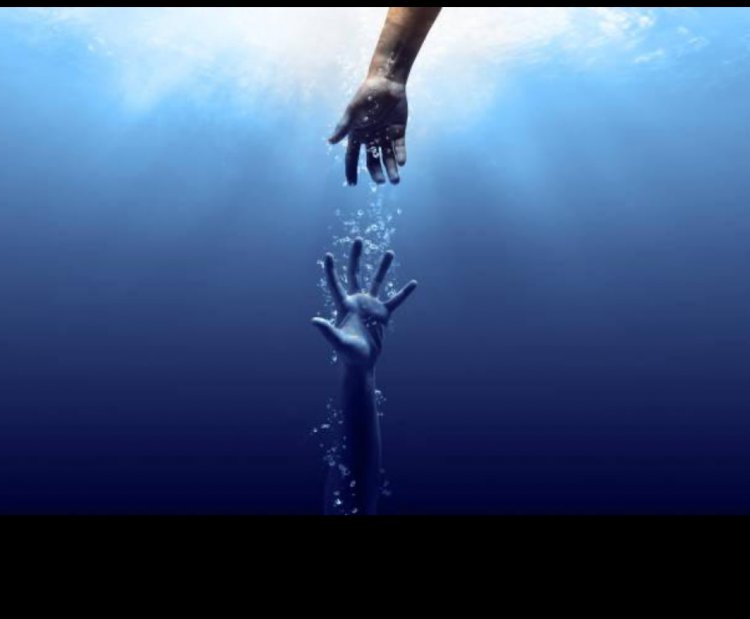740 lives lost to drowning in 2020-WHO Report on Ghana
Delivering a statement last Tuesday, July 25,2023 on the theme, "Water's Deadly Embrace: A Call for Drowning Prevention in Ghana", she recounted a sad account saying, "A few weeks ago, I had a heart-wrenching conversation with a friend who had lost his grandson to drowning.

The incidence of drowning though, a silent killer but receiving little attention from authorities and stakeholders.
However, a data published by the World Health Organization(WHO) indicates that some Seven Hundred and Forty(740) Ghanaian workforce have been lost to devastating incident of drowning.
This, was corroborated by a research conducted by the Kwame Nkrumah University of Science and Technology which also disclosed that some One Thousand Four Hundred and Forty-Nine(14449) cases of drowning were recorded globally within the last three years, a sad incident that calls for stringent measures to tackle head-on.
Sylvia Amponsah,the Public Relations Officer CSIR Water Research Institute decried the devastating effects of drowning on the individual, family and the nation at large.
Delivering a statement last Tuesday, July 25,2023 on the theme, "Water's Deadly Embrace: A Call for Drowning Prevention in Ghana", she recounted a sad accounts saying, "A few weeks ago, I had a heart-wrenching conversation with a friend who had lost his grandson to drowning.
The news,she noted hit her hard, and could not help but worry about the nephews, who she usually take to swimming lessons.
"The thought of these innocent children facing such a tragedy was unbearable.This incident also reminded me of my cousin, Silas, in the US, who has been fighting for his life for the past two years after a drowning incident",she said.
"The toll it has taken on him and his mother, who is a single parent, is immense",she noted.
For that course, 25th July has been set aside to raise awareness about drowning as a global health issue and highlight the importance of preventive measures.
She expressed amusement at how little attention is given to the issue of drowning compared to other tragedies even though deaths relating to drowning happens between 20 to 60 seconds, making it a serious matter of concern.
Though, drowning accounts for the third leading cause of unintentional injury-related cause of mortality worldwide and one of the top 10 global causes of death in children and adolescents, with children under five years old being most at risk.
Drowning being, a globally under-recognized and neglected public health burden kills a staggering 320,000 people annually, a matter of grave concern which deserves pragmatic measures to address.
Sadly, more than 90% of deaths associated with drowning, occur in low- and middle-income countries with insufficient prevention measures.
"The magnitude of the drowning crisis and its devastating aftermath leave families and communities grappling with unimaginable pain",she added.
The unfortunate case of Silas,her cousin, who she said is still waging a battle for survival, bedridden, enduring the excruciating pain of medications and injections adding, "No one deserves to endure such agony and repercussions that extend beyond physical suffering".
She recounted the turmoil and emotional pain parents and family members are forced to cope with.
She disclosed that drowning does not have emotional strain on an individual but places a significant economic burden on the country.
She observed that the costs associated with search and rescue operations and emergency medical care cannot be calculated disclosing that beyond the immediate financial impact, the loss of human potential is immeasurable.
She disclosed that for each child or adult lost to drowning or enduring long-term disability, the nation forfeits valuable human resources that could have contributed to the economy's growth.
Ensuring the safety of all citizens is vital to harnessing their potential, preserving household income levels, and preventing an increased reliance on social support systems.
The urgency to address this critical issue cannot be overstated, for it is not only a matter of preserving lives but also safeguarding our nation's economic prosperity.
Emphasizing proactive prevention over reactive response is the key, she suggested. She cautioned one should not overlook the importance of basic swimming skills and the use of life jackets.
"Now is the time to introduce our children to swimming, and consider providing training for domestic staff and teachers, empowering them with the knowledge to assist our children in times of need", she intimated.
She said enacting and enforcing water safety policies and legislation will be paramount in preventing drowning.
She is corroborating the calls by the Ghana Swimming Association to actively advocate for the improvement of swimming pool facilities and safety standards in the country.
The association is urging the country to implement acts mandating safety barriers around residential and public pools.
It said pool owners should ensure comprehensive water safety education before anyone enters the pool.
She suggests the Education Service should play a pivotal role by introducing water safety education programme from crèche through to high school, covering water hazards, safe behaviours, swimming skills, CPR, and rescue techniques with active supervision, physical barriers, pool alarms, and signage

 Prosper Kwaku Selassy Agbitor
Prosper Kwaku Selassy Agbitor 


































